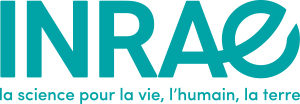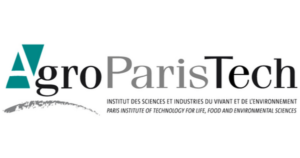Le LISIS est un laboratoire de recherche interdisciplinaire consacré à l’étude des sciences et des innovations en sociétés. L’enjeu de ses recherches est de comprendre les transformations sociales et politiques liées à l’innovation scientifique et technique dans notre rapport à l’environnement, à la globalisation économique et à la digitalisation des mondes sociaux et professionnels.
Il s’agit, d’une part, de travailler sur les transformations conjointes des façons de produire des connaissances et des façons de gouverner (saisies à la fois dans l’analyse des organisations, de l’action publique et de la construction des marchés) et, d’autre part, d’analyser ces transformations à différentes échelles, en conduisant des enquêtes dans de nombreux espaces (des laboratoires de recherche ou des exploitations agricoles aux agences réglementaires en passant par les organisations internationales) et en associant méthodes d’enquête qualitatives et traitement de grands corpus de données.
Le LISIS travaille sur différents domaines de recherche : l’agriculture, l’environnement et le monde du vivant ; les technologies de l’information et de la communication ; la santé environnementale ; les technosciences émergentes (génomique, nanotechnologies, biologie de synthèse, fabrication additive, etc.). Cette diversité constitue une opportunité exceptionnelle pour développer un travail collectif comparatif. En outre, compte tenu de la diversité des mondes sociaux, des acteurs et des formes d’innovation, de l’importance des jeux d’échelle et des problèmes de transition, l’agriculture constitue un excellent laboratoire pour travailler l’ensemble des thématiques de recherche de l’Unité.
LISIS is an interdisciplinary research laboratory dedicated to the study of science and innovation in societies. The challenge of his research is to understand the social and political transformations related to scientific and technical innovation in our relationship to the environment, the economic globalization and the digitalization of the social and professional worlds.
LISIS works in a variety of research areas: agriculture, the environment and the living world; information and communication technologies; environmental health; and emerging technosciences (genomics, nanotechnologies, synthetic biology, additive manufacturing, etc.). This diversity constitutes an exceptional opportunity to develop a comparative collective work. Moreover, given the diversity of social worlds, actors and forms of innovation, the importance of scale games and problems of transition, agriculture constitutes an excellent laboratory for working on all of the Unit’s research themes.
Ixodes ricinus.
- Wongnak, P., Bord, S., Jacquot, M. et al. Meteorological and climatic variables predict the phenology of Ixodes ricinus nymph activity in France, accounting for habitat heterogeneity. Sci Rep 12, 7833 (2022). https://doi.org/10.1038/s41598-022-11479-z
- Lebert I, Bord S, Saint-Andrieux C, Cassar E, Gasqui P, Beugnet F, Chalvet-Monfray K, Vanwambeke SO, Vourc’h G, René-Martellet M. Habitat suitability map of Ixodes ricinus tick in France using multi-criteria analysis. Geospat Health. 2022 May 17;17(1). doi: 10.4081/gh.2022.1058. PMID: 35579242.
- Severine Bord, Sylvain Dernat, Laetitia Ouillon, Magalie René, Gwenaël Vourc’H, et al.. Tick ecology and Lyme borreliosis prevention: a regional survey of pharmacists’ knowledge in Auvergne-Rhône-Alpes, France. Ticks and Tick-Borne Diseases, 2022, 13 (3), pp.101932. ⟨10.1016/j.ttbdis.2022.101932⟩. ⟨hal-03672010⟩
- Bord, S., Lebert, I., René-Martellet, M., Dernat, S., Johany, F., Bimonte, S., Chalvet-Monfray, K., Poux, V., Cosson, J.-F., Smoreda, Z., Vourc’h, G. (2019). Intérêt des données de téléphonie mobile et des sciences participatives pour l’estimation et la compréhension du risque de transmission de maladies liées à l’environnement : Application aux maladies transmises par les tiques.
- Bord, S., Vourc’h, G. (2018). Modélisation spatiale de l’abondance de tiques Ixodes ricinus. Presented at Réunion Tiques & Maladies à Tiques, Laschamps – Saint Genès Champanelle, FRA (2018-03-13 – 2018-03-15).
- Bord, S., Bioche, C., Druilhet, P. (2018). A cautionary note on Bayesian estimation of population size by removal sampling with diffuse priors. Biometrical Journal, 60, 450-462.
- Vourc’h, G., Abrial, D., Bord, S., Jacquot, M., Masséglia, S., Poux, V., Pisanu, B., Bailly, X., Chapuis, J.- L. (2016). Mapping human risk of infection with Borrelia burgdorferi sensu lato, the agent of Lyme borreliosis, in a periurban forest in France. Ticks and Tick-Borne Diseases, 7, 644-652.
- Bord, S., Druilhet, P., Gasqui, P., Abrial, D., Vourc’h, G. (2014). Bayesian estimation of abundance based on removal sampling under weak assumption of closed population with catchability depending on environmental conditions. Application to tick abundance. Ecological Modelling, 274, 72-79.
- modélisation
- échantillonnage
- abondance

